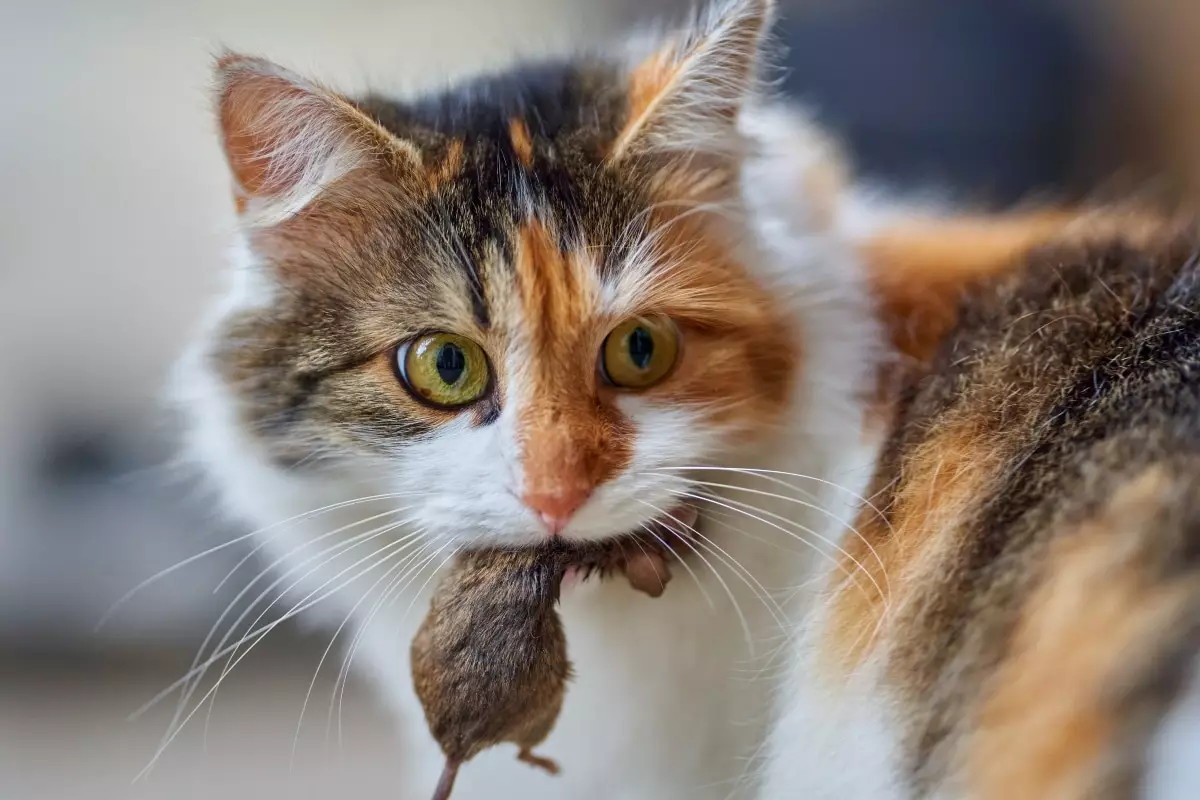Cats have long captured human fascination with their enigmatic behavior, and one particularly endearing—albeit puzzling—habit is their tendency to present “gifts.” Whether it’s a toy mouse nestled in your slippers or a stray sock left on your bed, these gestures often leave cat owners scratching their heads. However, delving deeper into this phenomenon unveils the intricate tapestry of feline instincts, social communication, and emotional bonding.
At the heart of a cat’s penchant for bringing home “gifts” lies their innate hunting instinct. Even the most pampered house cat retains a primal drive to hunt, a feature that hasn’t dimmed with domestication. Offering you their captured prey—or a toy that mimics it—is akin to showcasing their prowess as hunters. This act serves a dual purpose: it aids in honing their skills and acts as a display of their competency. In the wild, a cat might share its surplus food with its group, and by presenting you with gifts, your cat is likely trying to incorporate you into its family unit. It’s not just a gesture of affection but also a demonstration of their commitment and trust in you as part of their clan.
In feline society, mother cats play an essential role in teaching their young how to hunt. This nurturing behavior naturally extends beyond mere survival; it signifies care and instruction. When your cat offers you its imaginary catch, there is likely an element of them acting as a mentor. In their feline eyes, your hunting skills might need a little polishing. These gestures could be perceived as your cat believing you require assistance, as if they are gently nudging you toward becoming better at surviving in their world.
Another core reason behind this unique cat behavior is the pursuit of interaction. Cats are incredibly perceptive creatures, and they understand that presenting a “gift” often garners a response from their human companions—be it praise, playtime, or even a lighthearted chase to reclaim the object. In this way, they are not just fulfilling an instinctive behavior; they are also engaging you in a mutually enjoyable activity. This demonstrates a keen understanding of social dynamics and communication, showcasing that your feline friend craves your attention and interaction as much as you do theirs.
It’s fascinating to consider that even without kittens of their own, cats possess a nurturing instinct. This trait translates into their behavior toward humans, where sharing becomes a form of caretaking. By bestowing you with gifts, your cat may be reinforcing your presence in their life, solidifying your bond as if you were part of their litter. This display is a testament to the emotional connections they form. Rather than seeing these offerings simply as gifts, it’s essential to recognize them as acts of love and belonging.
It’s not uncommon for a bored cat to concoct imaginative forms of entertainment. When your cat starts presenting gifts, it may also stem from their need for stimulation. Collecting and displaying various items can turn into a delightful pastime, providing the mental engagement they seek. By introducing new toys or creative interactive play sessions, you can diminish their urge to entertain themselves through non-stop “gift-giving.”
Cats communicate through scent, marking their territory and reinforcing relational ties. When your cat brings you objects, it’s a way of mingling their scent with yours, symbolically intertwining your lives. This marking behavior signifies a cohesive bond—they’re essentially saying, “This is ours.”
When you next find a token left at your feet, embrace the moment for all it signifies. These expressions are rich in emotional significance and social connectivity, offering a glimpse into the intimate world of your cat. Understanding this multifaceted behavior can enhance the bond you share and ultimately lead to a more harmonious coexistence with your feline friend. The next time you encounter one of these “gifts,” appreciate the deeper meaning embedded within—your cat may just be trying to tell you they love you.

